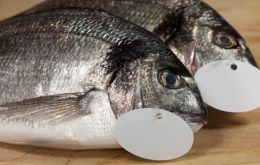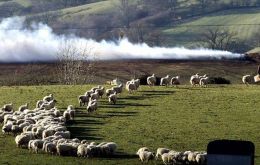MercoPress. South Atlantic News Agency
Stories for May 10th 2011
-
Tuesday, May 10th 2011 - 13:10 UTC
Falklands/Argentina argument “begins and ends with self determination”

The basic argument between the Falkland Islands and Argentina “begins and ends with self determination”, underlined Martin Longden Deputy Director of Overseas Territories in an interview with Tony Curran published in the Falklands’ weekly Penguin News.
-
Tuesday, May 10th 2011 - 11:18 UTC
Valenzuela, US top State Department official for Latam tenders resignation

Expressing a desire to return to his academic post at Georgetown University, Chilean-born Arturo Valenzuela tendered his resignation as the head United States advisor for Latin American Affairs on Friday, May 6.
-
Tuesday, May 10th 2011 - 10:31 UTC
Colombia’s Mejía formally takes office as Unasur Secretary General

Colombia’s former Foreign Minister, María Emma Mejía, was appointed Monday as the new Secretary General to the Union of South American Nations (UNASUR) in a ceremony in Georgetown hosted by Guyanese President Bharrat Jagdeo.
-
Tuesday, May 10th 2011 - 10:25 UTC
Another major blackout leaves western Venezuela ‘totally affected’

Venezuela restored early Tuesday 90% of power knocked out by a blackout Monday that hit 10 states in the western part of the country. This is the second major power failure in just over a month.
-
Tuesday, May 10th 2011 - 10:17 UTC
S&P downgrades Greek debt as junk; “haircut” a growing possibility

Standard and Poor's cut Greece's credit rating further into junk territory, reflecting growing doubts that the Euro zone's most fragile economy can manage its debt without imposing losses on private bondholders.
-
Tuesday, May 10th 2011 - 10:16 UTC
President Cristina Kirchner expected to resume activities Tuesday

Argentine President Cristina Fernández de Kirchner surprised her closest staff as she decided to extend her weekend trip and stay in the family’s residence at El Calafate, Santa Cruz at least for Monday, thus postponing all activities scheduled for the beginning of the week.
-
Tuesday, May 10th 2011 - 09:55 UTC
Brazil considering leasing farm land to foreigners to circumvent sales restrictions

Brazil may start leasing farm land to foreigners to find a way around new legal restrictions on land sales and attract more foreign investment, the agriculture minister said.
-
Tuesday, May 10th 2011 - 09:50 UTC
Chilean protestors clash with police as regulators approve five-dam project in Patagonia

Chile approved on Monday the construction of a hydroelectric project that would flood Patagonian valleys and become the country’s biggest power generator, sparking violent protests.
-
Tuesday, May 10th 2011 - 09:37 UTC
Conservationists claim seafood labelling ‘fails’ to support sustainable fishing

The Marine Conservation Society (MCS) has accused UK supermarkets of failing to label seafood in a way that makes it easy for consumers to select sustainable sourced fish. The allegation came as the MCS published the Good Fish guide, which is being hailed as the most comprehensive sustainable seafood advice released to date.
-
Tuesday, May 10th 2011 - 09:34 UTC
Mass culling of farm animals when outbreak of FMD ‘unnecessary’ say scientists

The mass cull of farm animals to control the spread of foot-and-mouth disease, FMD, may be unnecessary if there is a new outbreak, scientists suggest. A new analysis of disease transmission suggests that future outbreaks might be controlled by early detection and killing only affected animals.
